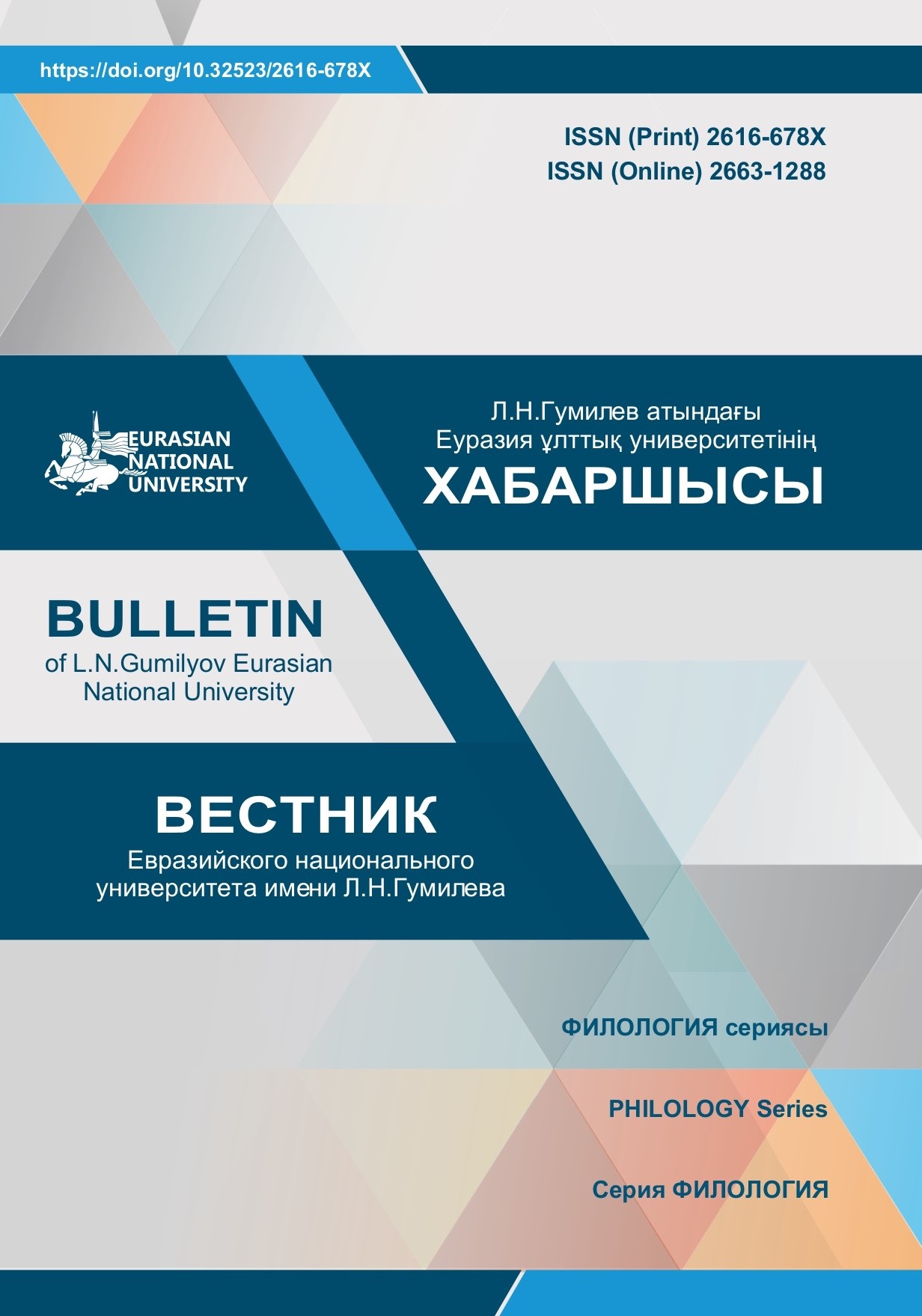Қазіргі қазақ тіліндегі көнерген лауазым атауларының «Кодекус куманикус» жазба ескерткішіндегі этнолингвистикалық сипаты
Қаралымдар: 260 / PDF жүктеулері: 349
DOI:
https://doi.org/10.32523/2616-678X-2023-142-1-67-75Кілт сөздер:
көнерген сөздер, этнолингвистика, әскерилингвистика архаизмдер, экстролингвистика, этнография, тарихи сөздер, этимологияАңдатпа
Мақалада орта ғасыр жазба жәдігері «Кодекус куманикустағы» көнерген сөздердің этнолингвистикалық сипаты талданды. Түркі халықтарының рухани, мәдени, әлемінің дүниетанымы мен тұрмыс-тіршілігінен мол хабар беретін құнды ақпарат көзі – орта ғасырлық жазба ескерткіштер болып табылады. Аталған тілдік құбылысты зерттеу тіл ғылымда көкейтесті мәселелердің бірі. Шетелдік және отандық түркологтардың тұжырымдары негізге алынды. Қоғамдағы тарихи үрдістер мен экстролингвистикалық әсерлерден сөз мағынасының кеңейіп жетілуі, я болмаса қолданылу ерекшелігіне қарай көнеріп, кірігіп, бірігуі не жаңа сипат алуы заңды құбылыс. Талдау негізінде «Кодекус куманикус» жазба жәдігеріндегі лауазым атаулары мен құқықтық-әкімшілік, әскери лексикаға қатысты көнерген бірліктері анықталды.
Әлемдік түркологияда жазба жәдігерлерді лингвистикалық, танымдық, тарихи, философиялық тұрғыдан зерттеу ісі әлдеқашан қолға алынған. Ғасырлар бойы даму барысында тіл жиылған бар байлығын тарих қойнауына жасырып, келешек ұрпаққа аманат ретінде жеткізіп отырады. Осы тұрғыдан келгенде «Кодекус куманикус» жазба жәдігерінің тілдік құрамындағы көнерген сөздердің өз дәуірінде қолданылуы мен қазіргі кезеңдегі қолданыс өрісінің қандай екенін ажырату негізгі мақсатымыз болып табылады.
Зерттеу жұмысының нәтижесінде алынған тұжырымдар түркі сөздерінің сөздігін құрастыруда практикалық маңызға ие болуы мүмкін.







